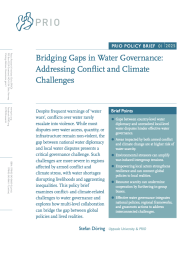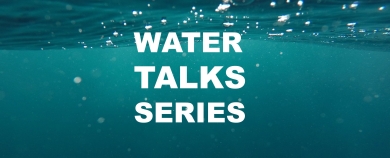
Combler les lacunes dans la gouvernance de l'eau : Relever les défis liés aux conflits et au climat

Résumé
Cette note politique explore la manière dont la diplomatie nationale de l'eau échoue souvent à résoudre les conflits cruciaux liés à l'eau au niveau local, en particulier dans les régions touchées par les conflits et le stress climatique. Malgré les mises en garde contre de futures "guerres de l'eau", les conflits violents liés à l'eau restent rares ; cependant, les écarts de gouvernance entre les cadres mondiaux et les besoins locaux peuvent exacerber les inégalités sociales et la dégradation de l'environnement. S'appuyant sur des exemples du Sud-Soudan, de la Syrie, du Burkina Faso et de l'Inde, cette note souligne la nécessité d'une gouvernance de l'eau à plusieurs niveaux qui intègre l'action locale, les stratégies sensibles aux conflits et l'adaptation au climat. Elle plaide en faveur d'approches de la coopération dans le domaine de l'eau qui soient inclusives et fondées sur des données probantes et qui puissent favoriser la résilience et la stabilité dans les régions vulnérables.
Points succincts
- Les traités nationaux et transfrontaliers sur l'eau négligent souvent les litiges non résolus au niveau local.
- Le changement climatique et les conflits armés augmentent conjointement le risque de pénurie d'eau dans des régions déjà fragiles.
- Le stress environnemental peut intensifier les tensions entre les groupes, en particulier lorsque les institutions sont faibles.
- L'autonomisation des acteurs locaux est essentielle pour relier la gouvernance mondiale de l'eau aux réalités vécues.
- Les solutions coopératives au niveau local - comme l'irrigation communautaire ou le partage par rotation - sont prometteuses, mais elles ont besoin d'une reconnaissance et d'un soutien formels.
- L'intégration de la sensibilité aux conflits, de la participation inclusive et des technologies adaptatives peut contribuer à combler les lacunes en matière de gouvernance et à prévenir les conflits futurs.
Plongez dans l'analyse complète en téléchargeant le document ci-dessous.




